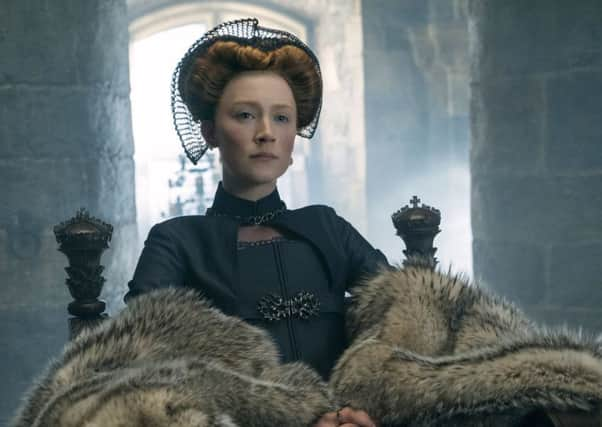Scottish women are being left out of film boom '“ Brian Ferguson


Two major film premieres in Edinburgh in the space of three months have provided a welcome boost to the Scottish film industry – especially given the presence at those events of the Hollywood stars playing lead roles.
I was somewhat surprised at both Chris Pine and Saoirse Ronan making the effort to launch Outlaw King and Mary Queen of Scots in the city when both films had already had major premieres elsewhere. It is little wonder Edinburgh Castle was made available for First Minister Nicola Sturgeon to roll out the welcome mat.
Advertisement
Hide AdThe VIP receptions at the castle’s Great Hall and the Scottish premieres staged by Netflix and Universal Pictures have helped generate a much-needed feel-good factor around an industry that has not had its problems to seek in modern times. They have certainly helped fill the lengthy gap in the calendar between the big film festivals in Edinburgh and Glasgow.
But I couldn’t quite shake a nagging feeling as I watched the Mary Queen of Scots film unfold at the Cameo Cinema. Here was a major motion picture on one of the most iconic women in Scottish history – but with a cast notably lacking in Scottish actresses in the major roles.
While Scottish actors Jack Lowden, James McArdle, Martin Compston and David Tennant all had significant roles, big-name Scottish actresses were nowhere to be seen, with Ronan, an Irish-American, and Australian Margot Robbie claiming the main roles of Mary and Elizabeth I. Karen Dunbar, the Scottish comic who was also a guest of honour at the castle reception, actually only has a blink-and-you’ll-miss-it cameo.
I can recall the same, slightly uncomfortable feeling at the premiere of Outlaw King in Edinburgh, when Pine was joined on the red carpet by stars James Cosmo and Tony Curran, and English actors Aaron Taylor-Johnson and Billy Howle. Once again, with English star Florence Pugh in the main female role, established Scottish actresses did not get much of a look in.
It has got me thinking if there is something of a pattern in the Scottish film industry which sees filmmakers continually look elsewhere for women to play major roles?
Agyness Deyn, the English actress cast in the lead role of Chris Guthrie in the recent adaptation of Sunset Song is a classic example. It was also telling that English actresses Imogen Poots and Joanne Froggatt were cast alongside James McAvoy in Filth.
Advertisement
Hide AdPart of the problem is that many Scottish feature films are still dominated by male characters. One of the notable features about T2 Trainspotting was the vastly reduced roles for the characters played by two of Scotland’s leading actresses, Shirley Henderson and Kelly Macdonald.
Recent winners of best film actress award at the Scottish Baftas have been for films which have had little or impact at the box office – such as White Chamber or The Dark Mile.
Advertisement
Hide AdOne Scottish film with a Scottish actress in a lead role did make the best feature shortlist at last year’s Scottish Baftas.
But Karen Gillan also wrote and directed The Party’s Just Beginning. Meanwhile, Irish actress Jessie Buckley will play a Glaswegian country singer in one of this year’s most anticipated Scottish films, Wild Rose.
While Mary Queen of Scots may be something of a turning point, with a female director behind a film with two strong female characters, there seems a long way to go before Scottish female talent is put on a real equal footing.